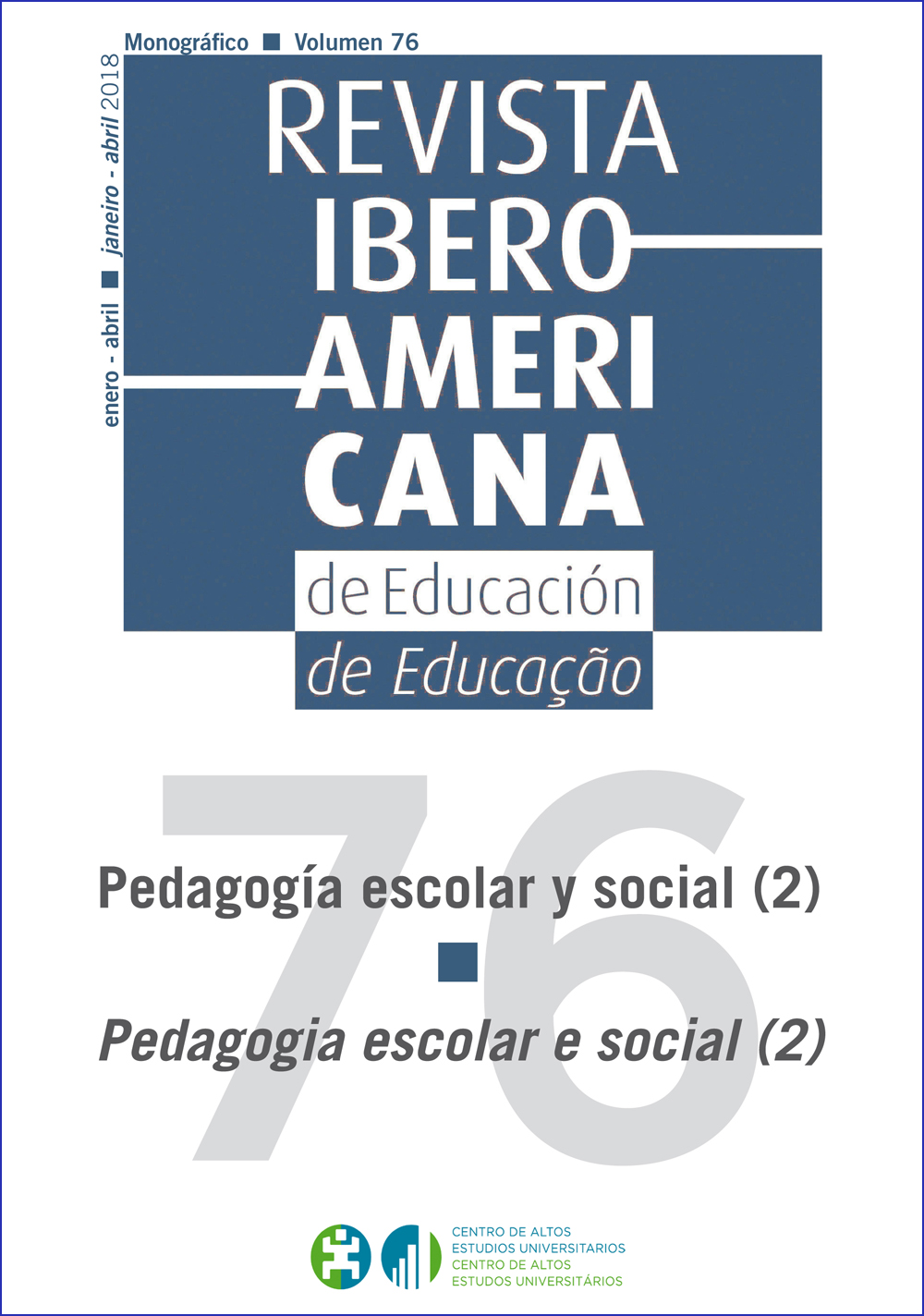Project-based method in chilhood education: social pedagogical change
DOI:
https://doi.org/10.35362/rie7602861Keywords:
Project-Based Method; childhood education; assessment; teachers; social pedagogyAbstract
his paper presents the results of an investigation focus on knowing the Project-Based Method in Childhood Education. From an ex post facto descriptive investigation design, having a sample of 214 Childhood Education teachers of Región de Murcia (Spain) that currently works with this methodology. We used an ad hoc questionnaire, validated by experts, in order to collect the data. The reliability of the questionnaire was analyzed by the alpha of Cronbach. The results evidence that the Project-Based Method is an efective instrument that favours social justice, because its implementation respects the teaching and learning rhythmsof both, teachers and students. Likewise, it highlights the difficulty of embracing it because the rigid educational administration.
Downloads
References
Belavi, G., y Murillo, F. J. (2016). Educación, Democracia y Justicia Social. Revista Internacional de Educación para la Justicia Social (RIEJS), 5(1), 13-34 doi:10.15336/riejs2016.5.1
Bolivar, A. (2012). Justicia Social y equidad escolar. Una revisión actual. Revista Internacional de Educación para la Justicia Social, 1(1), 2012, pp. 9-45, ISSN: 2254-3139. doi: 10.15366/riejs
Cascales-Martínez, A., Carrillo-García, M. E., y Redondo-Rocamora, A. M. (2017). ABP y Tecnología en Educación Infantil. Píxel-Bit. Revista de Medios y Educación, (50), 201-210. Recuperado de http://acdc.sav.us.es/ojs/index.php/pixelbit/article/view/903/815
Chávez Barquero, F. H., Cantú Valadez, M., y Rodríguez Pichardo, C. M. (2016). Competencias digitales y tratamiento de información desde la mirada infantil. Revista electrónica de investigación educativa, 18(1), 209-220. Recuperado de http://www.scielo.org.mx/scielo.php?script=sci_arttext&pid=S1607-40412016000100015
De Vellis, R.F. (2003). Scale development: Theory and applications (2ª ed.). Thousand Oaks, CA: Sage
Fernández Martínez, P., y Gallardo Fernández, I. M. (2016). “El lenguaje como medio de construcción social del conocimiento en educación infantil”. Revista Iberoamericana de Educación, 71, 111-131. Recuperado de: https://rieoei.org/RIE/article/view/7
Gallardo Fernández, I. M., Ríos García, I., Fernández Martínez, P., y Ramos Xavier, G. T. (2016). “Presentación. Educación Infantil (II)”. Revista Iberoamericana de Educación, 72, 11-13. Recuperado de https://rieoei.org/RIE/article/view/43
Gay, L. R. & P. Airasian (2000), Educational Research: Competencies for analysis and application, Upper Saddle River, NJ, Prentice–Hall.
Helm, J. H., & Katz, L. G. (2016).Young investigators: The project approach in the early years. Teachers College Press. Recuperdado de https://books.google.es/books?hl=es&lr=&id=5mQLDAAAQBAJ&oi=fnd&pg=PP1&dq=project+based+approach+in+early+childhood&ots=kqbloLPRDt&sig=PiHhaAXgd0bd5WAJC04fnDQ7w0w#v=onepage&q=project%20based%20approach%20in%20early%20childhood&f=false
Kilpatrick, W. H. (1929): The Project Method: The Use of the Purposeful Act in the Educative Process. Recuperado de https://archive.org/details/projectmethodus00kilpgoog
Latapí Sarre, J. (2012). Educación y Justicia Social. Revista Internacional de Educación para la Justicia Social 1(1), 2012, pp. 199-202, ISSN: 2254-3139 Recuperado de http://www.rinace.net/riejs/numeros/vol1-num1/doc1.pdf
Moral Pérez, M. E., Villalustre Martínez, L. y Neira Piñero, M. R. (2013). Oportunidades de las TIC para la innovación educativa en las escuelas rurales de Asturias. Aula Abierta, Vol. 42. Número 1. Enero-Junio 2014, 61-67.doi: 10.1016/S0210-2773(14)70010-1
Mosconi, E., Gamino, A., y González, A. (2016). El aula extendida, un espacio complementario integrador de conocimientos. Recuperado de http://ridaa.unicen.edu.ar/xmlui/handle/123456789/509.
Ortí Martínez, J. A., y Iniesta-Sepúlveda, M. (2016). Didáctica de la Matemática a través de la Música y el Aprendizaje por Proyectos en Educación Infantil. Revista Internacional de Educación Preescolar e Infantil, 2(1), 31-40. Recuperado de http://journals.epistemopolis.org/index.php/eduinfantil/article/view/561
Ruiz Torres, M. D. C., y Mérida Serrano, R. (2016). Promover la inclusión de las familias a través del desarrollo de Proyectos de Trabajo. Un estudio de caso/Promoting the inclusion of families through the development of Work Projects.A case study. Revista Complutense de Educación, 27(3), 943. Doi: http://dx.doi.org/10.5209/rev_RCED.2016.v27.n3.47022
Vergara Ramírez, J. J. (2015). Aprendo porque quiero. El Aprendizaje Basado en Proyectos (ABP), paso a paso. Editorial SM: Biblioteca Innovación Educativa.
Vygotsky, L. S. (1982). Obras escogidas. Tomo I, ed. Pedagóguika: Moscú; 1983. Traducción español. José María Bravo.
Vygotsky, L. S. (1982). Obras escogidas. Tomo II, ed. Pedagóguika: Moscú; 1983. Traducción español. José María Bravo.
Wieserma, L.D. (2001). Conceptualization and development of the sources of enjoyment in youth sport questionnaire. Measurement in Physical Education and Exercise Science, 5 (3), 153-157.
How to Cite
Downloads
Published
Issue
Section
License
Any authors who publish with this journal accept the following terms:
















